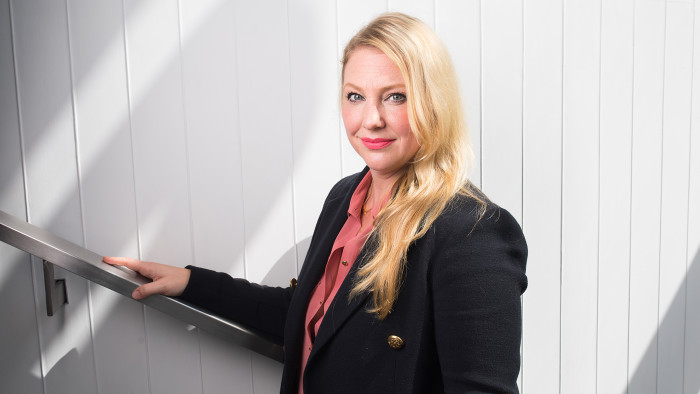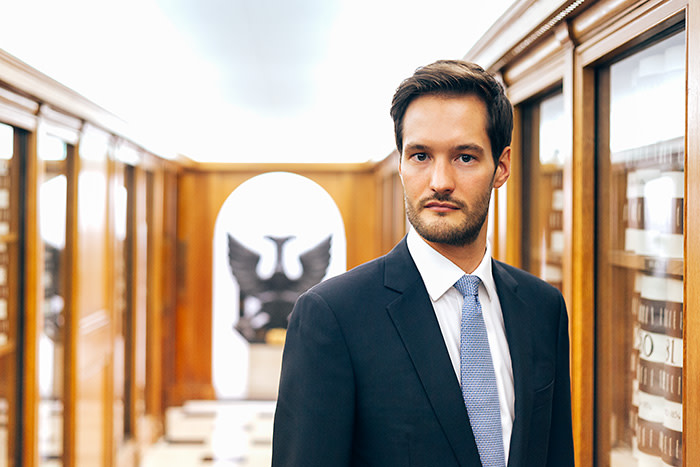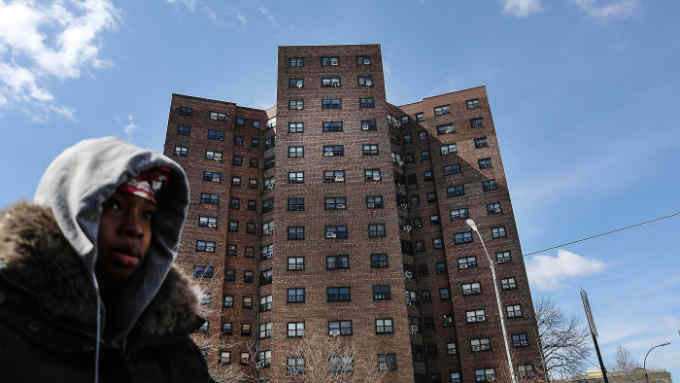Impact investing crosses generation gap

Roula Khalaf, Editor of the FT, selects her favourite stories in this weekly newsletter.
Impact investing is new, dynamic and at the frontier of investment. Family offices are often old, traditional and conservative in their outlook. The two are not obvious partners, then, but family offices are showing more interest in impact investing, and say the strategy can bring benefits for a family as a whole.
The move towards impact investing by family offices has accelerated in the past year, according to Rebecca Gooch, director of research at Campden Wealth. She says the research group’s annual survey of global family offices, carried out with UBS this year, and published in September, reflects this. “Impact investing is becoming a heated trend in the family office community, with about a third of family offices now engaged in it,” she notes.
Richard Clarke-Jervoise, head of the private capital investment team at multi-family office Stonehage Fleming, also says impact investing has become of increasing interest to clients. “There has been a step change in the past 12-18 months where it feels like we have gone through a tipping point and the interest has become more material,” he says.
John Goldstein, managing director of environmental, social and governance and impact investing at Goldman Sachs Asset Management, says family offices are increasing the amount of impact investing they do, from 5-10 per cent of their portfolio to 25-50 per cent. Some, he says, have even signed up to the 100% Impact Network, a group of family offices and other wealthy investors who have agreed to put all of their resources into impact investment.
A significant advantage of impact investing is that it can be an effective way to bring generations of a family together. Often, advisers say, the original wealth creator finds it difficult to interest children or grandchildren in the investment side of the family wealth. But with the younger generation tending to be more socially minded, impact investing can be a way of drawing them in. “There is a huge divide between the generations and it is very difficult to bridge that divide,” notes Clarke-Jervoise.
“Impact investment is often the first time that both generations have a meaningful conversation about investment so it is providing more of a cementing role. It plays a very subtle but very important role in getting both generations on the same page and talking about matters that are important to both of them.”
It is usually the younger generation that raises the topic of impact investment for the first time. Gooch says that for family offices undertaking impact investment, about half the money is currently put towards education, environmentalism or energy and resource efficiency.
Another trend at family offices is that the younger generation is inheriting money later in life as baby boomers live longer. The younger generation whose parents are still alive are now in their 30s or 40s. Yet this does not mean they are not able to make investment decisions; rather, advisers say, their views on investment are respected because of their maturity, even though they do not have control of the money themselves.
“The influence of the younger generations will increase massively, long before the assets are handed over,” says David Stubbs, head of client investment strategy at JPMorgan Private Bank. “A 35- and an 18-year-old both making the case for impact investing is very different. The younger generation don’t have to have formal control of the assets to start exerting influence.”

It is not always the younger generation driving interest in impact investment. Rennie Hoare, a millennial member of the C Hoare & Co banking dynasty, says the “driving force” behind the family trust’s social impact investments was Alexander Hoare, the managing partner, who is 56. “The people with capital are still the older generation and within that there are people who are really interested in it,” he says.
However, advisers say the level of interest is still stronger than the impact investing family offices are currently undertaking. “We observe a large ratio of interest to allocation,” notes Stubbs, who says many families are not yet putting their money where their mouth is. But he adds: “I think it will grow rapidly from here, which is why banks are putting a lot of resource behind this.”
Clarke-Jervoise says of the 250 or so families Stonehage Fleming advises “probably only a handful” have made any impact investments to date. Still, he says, around a fifth of their clients are seriously interested in impact investing.
As with other types of investor, family offices have also struggled with the definition of impact investment and, crucially, how to measure the impact an investment has.
“At the moment, some family offices have clearly embraced impact investing and have developed robust techniques to maximise their social, environmental and economic returns,” says Gooch. “Others, however, are either still in the dark about this area of ‘social good’ investing or are still finding their feet when trying to adopt it.”
Clarke-Jervoise agrees that the difficulty of measuring impact can increase uncertainty for families considering such investment. Most clients “don’t yet have a clear view” of their return objective, he says. “You see a real variety of views and opinions, from people who say, ‘I don’t want a financial return on this even to the point where if I make a loss it doesn’t really matter’, to, at the other end, people saying, ‘I see this as an opportunity to tap into very contemporary investment themes and I want a 20-30 per cent return’.”
For families that are also engaged in specific philanthropic activities, this can be a way of aligning a different part of their portfolio with the philanthropic arm of their family office, says Clarke-Jervoise. That often means looking for impact investment opportunities that benefit their local community or perhaps the country they came from. Some have looked for impact investments around specific topics such as water; others have taken a geographic focus and tried to improve welfare in African countries, for example.
Family offices are in the strong position of having the resources to do it themselves. This is particularly true of families that traditionally have had a strong sense of philanthropy, says Goldstein. “Historically what has helped families is that their philanthropic mission is very specific but the market hadn’t necessarily created a specific niche for it,” he says. “Now, people are going through their portfolios and if there’s something quite specific that families want to do, they’ll go off and hire staff and do it themselves.”
Philanthropy with added impact
Some wealthy families are opting to align impact investments with their philanthropic goals as a family. Rennie Hoare is a member of the C Hoare & Co banking dynasty and points out that one of his ancestors, Henry Hoare, founded Westminster Hospital in London in 1719. The Hoare family also ran subscription campaigns for wounded veterans at the Battle of Waterloo in 1815. “Through history we’ve tried to get involved with giving back and philanthropy,” says Hoare, who was recently made a shareholding partner at the bank at the age of 32 in a bid to inject “millennial thinking”.
The family has had a charitable trust, the Golden Bottle Trust, since 1985, which it has recently tried to focus on specific causes close to the trustees’ hearts, including inequality, prisoners and refugees.
Since 2011, the trust has also been funnelling money into impact investments, which Hoare says makes it one of the longer-lived investors in this field. Impact investments now make up about 20 per cent of the trust, or £3m.
The trust also joined a limited liability partnership in 2016 with another charity, Panahpur. Each contributed between £2m and £3m to Project Snowball, which aims to pool resources from other trusts for impact investments while cutting down on fees such as those involved in due diligence.
Since then, Friends Provident Foundation, a family charity and another family office have joined both with similar contributions. The aim, Hoare says, is to eventually grow the venture to £100m and list it as an investment trust, allowing people to access impact investments through their pensions or other holdings.
Hoare hopes the industry will take note of the venture and do something similar. “The best thing that could happen is lots of people try to copy it,” he says.
This article has been amended to reflect UBS’s clarification of the report’s authorship.

Comments